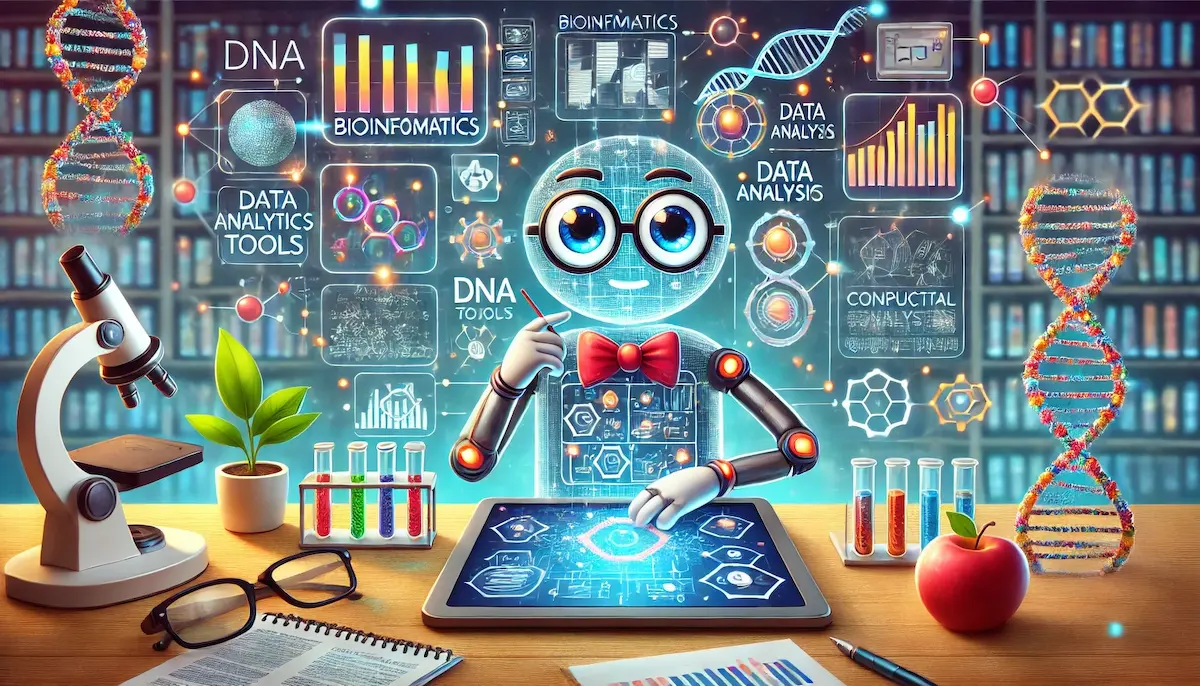Bioinformatics tools are essential resources in the modern life sciences, enabling researchers to analyze and interpret vast amounts of biological data. These tools combine computer science, mathematics, and biology to help scientists understand complex biological processes, from gene sequences to protein structures. With the explosion of data generated by high-throughput technologies like next-generation sequencing, bioinformatics tools have become indispensable in fields ranging from genomics to personalized medicine.
What Are Bioinformatics Tools?
Bioinformatics tools are software applications or platforms designed to manage, analyze, and visualize biological data. They can be broadly categorized into several types based on their functions:
- Sequence Alignment Tools: These tools, such as BLAST (Basic Local Alignment Search Tool) and Clustal Omega, allow researchers to compare DNA, RNA, or protein sequences to find similarities and differences. This is crucial for identifying homologous genes, understanding evolutionary relationships, and predicting gene functions.
- Genomics Tools: Tools like Bowtie, STAR, and GATK (Genome Analysis Toolkit) are used to analyze genomic data, including DNA sequencing reads. They help in tasks such as mapping sequences to a reference genome, identifying genetic variants, and assembling genomes from scratch.
- Structural Bioinformatics Tools: These tools, including PyMOL and Chimera, are used to visualize and analyze the 3D structures of biological macromolecules like proteins and nucleic acids. They are essential for understanding molecular interactions, studying protein folding, and designing new drugs.
- Data Integration and Analysis Tools: Platforms like Galaxy and Taverna provide environments where researchers can combine multiple bioinformatics tools to create complex analysis workflows. These tools make it easier to integrate various types of biological data, such as genomics, transcriptomics, and proteomics, into a cohesive analysis.
- Functional Annotation Tools: Tools like InterProScan and DAVID (Database for Annotation, Visualization, and Integrated Discovery) are used to annotate genes and proteins with functional information. They help in predicting the roles of genes and proteins in biological processes, which is essential for understanding how organisms function at the molecular level.
Applications of Bioinformatics Tools
Bioinformatics tools have a wide range of applications in research and industry. In genomics, they are used to sequence and analyze entire genomes, leading to discoveries in evolution, gene function, and the genetic basis of diseases. In personalized medicine, bioinformatics tools are used to analyze patient genomes, helping to tailor treatments based on individual genetic profiles.
In drug discovery, bioinformatics tools are employed to identify potential drug targets by analyzing protein structures and their interactions with small molecules. These tools also assist in the design of new drugs by predicting how modifications to chemical structures might affect their binding to targets.
Furthermore, bioinformatics tools are critical in the study of microbiomes, where they help researchers analyze the complex communities of microorganisms that inhabit environments like the human gut. This has implications for understanding health, disease, and the effects of diet and lifestyle on microbiomes.
The Future of Bioinformatics Tools
As biological data continues to grow exponentially, the development of more powerful and user-friendly bioinformatics tools will be essential. Advances in machine learning and artificial intelligence are already transforming bioinformatics, enabling more accurate predictions and faster analyses. Additionally, cloud computing is making it easier to handle large datasets and collaborate on bioinformatics projects across the globe.
The future of bioinformatics tools lies in their ability to integrate diverse types of biological data, from genomic sequences to clinical records, providing comprehensive insights into complex biological systems. This integration will be crucial for advancing fields like systems biology, precision medicine, and synthetic biology.
Blockfine thanks you for reading and hopes you found this article helpful.
